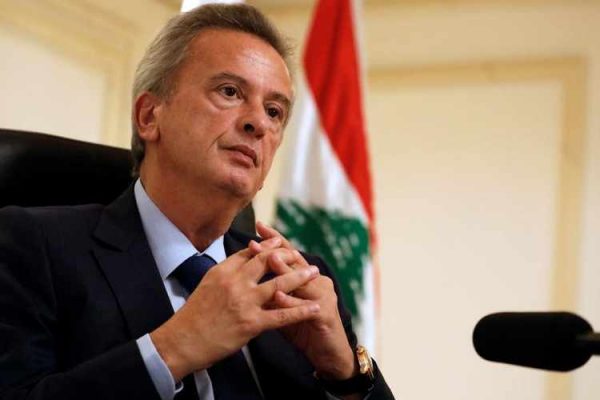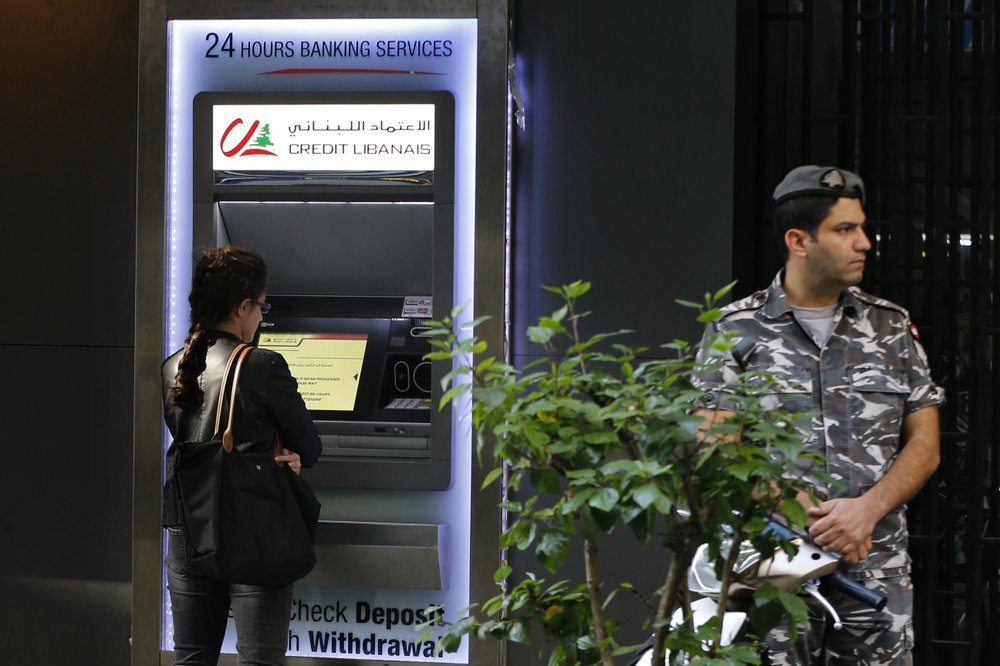Protest-stricken Lebanon has vowed to repay $1.5bn to holders of its government debt as planned this week despite a stalled economy and drained dollar reserves, but economists say the time has come to consider letting investors down.

With total borrowing of $88.4bn, Lebanon has one of the world’s biggest debt burdens, projected to be 155 per cent of gross domestic product by the end of 2019. But it has always met payments to creditors — a crucial step in maintaining investors’ trust and ensuring long-term access to international markets.
Now, as the protests over corruption and joblessness enter their second month, some analysts and economists are warning that imports should take precedence over bond obligations, urging the government to delay repayments or devise another way to spread the pain.
“They can reschedule this debt with a cheaper Eurobond issuance . . . not actually paying it but rescheduling it,” said Jad Chaaban, a professor of economy at the American University of Beirut.
Lebanon’s debt has piled up as the government has continued to spend more than it brings in, and remittances from the country’s diaspora have slowed. Last year the deficit was about 11 per cent of GDP.
With the economic situation worsening, the country could ask its creditors to accept delayed or smaller repayments, rather than continuing to pay punishingly high interest rates, according to Camille Abousleiman, a lawyer who has worked on Lebanon’s foreign debt issuances and is the caretaker minister of labour. “Lebanon is in reasonably good shape to negotiate a restructuring,” he said.
Nasser Saidi, a former central bank vice governor, said he expected the central bank would be able to provide the foreign currency needed to cover Thursday’s repayment, pointing out that not all the funds would automatically flow overseas. He estimated that over two-thirds of the $1.5bn owed would remain in the country as the debt is already held by local lenders and the central bank. “The balance to foreign investors can be covered from existing [foreign exchange] reserves,” he said.
For years the central bank, headed by Riad Salameh, has functioned as the government’s financier, helping the administration to access foreign currency to meet its repayment obligations when necessary.
Mr Salameh has run the Banque du Liban for over 25 years and his self-described “financial engineering”, often involving complicated asset swap operations with the country’s commercial banks, has often helped to steer Lebanon’s government and banking sector through difficult times.
But economists are increasingly concerned that such strategies will no longer be sufficient. In October, amid the worsening economic climate, the central bank introduced a facility to guarantee access to dollars for critical imports, accelerating the depletion of the state’s foreign exchange reserves, which fell by $900m in the first week of November.
At that rate, Lebanon’s foreign exchange reserves would run out by the middle of 2020, according to a stark analysis published by Bank of America on Monday.
The central bank says its gross international reserves are around $30bn but analysts say it would be hard immediately to access that full amount. Ratings agency Moody’s puts the central bank’s “usable foreign exchange buffer” at $5bn to $10bn and calculates that external debt service payments this year and next year will cost a combined $6.5bn.
In addition to facilitating government borrowing, the central bank is currently providing dollar liquidity to commercial banks through high-interest dollar loans.
“[The BdL] is now lending to the government and the commercial banks, so it has to make decisions about how it uses its remaining reserves,” said Mr Chaaban at the American University of Beirut Ultimately, the BdL may have to decide whether it continues to help the government to service its external debt or focuses on easing the plight of the country’s cash-strapped importers.
Mr Salameh, one of the world’s longest serving central bank chiefs, has so far insisted he can do both. In more than two decades when he has served as the BdL’s governor, Lebanon has never defaulted and the official exchange rate remained fixed at 1,507 Lebanese pounds to the dollar until this summer’s drop.
But the current dollar shortage has caused the unofficial exchange rate to fall by 20 per cent since August, while the loss of normal banking services has left many companies unable to renew stocks or pay employees full salaries.
“The extraordinary measures taken by the BdL and banks are buying time at the cost of a contraction in economic activity,” the Bank of America research note said, pointing to efforts by various banks to limit customer withdrawals.
The country’s predicament is complicated by the absence of an elected government to lead negotiations on a comprehensive restructuring of its debt. Prime minister Saad Hariri resigned early this month in response to the protests and so far there has been little progress in forming a new government that would meet demonstrators demands.
But former labour minister Mr Abousleiman argued that the interim administration has the authority to lead such discussions and has an obligation to act. “The caretaker government can constitutionally, and should, deal with the crisis,” he said. “They cannot abandon ship.”
FINANCIAL TIMES


Leave a Reply
You must be logged in to post a comment.